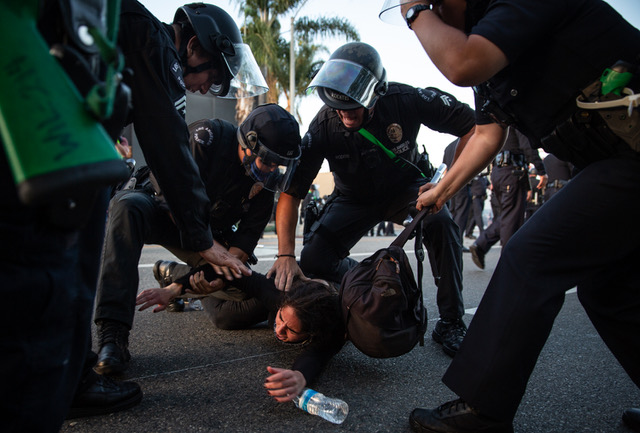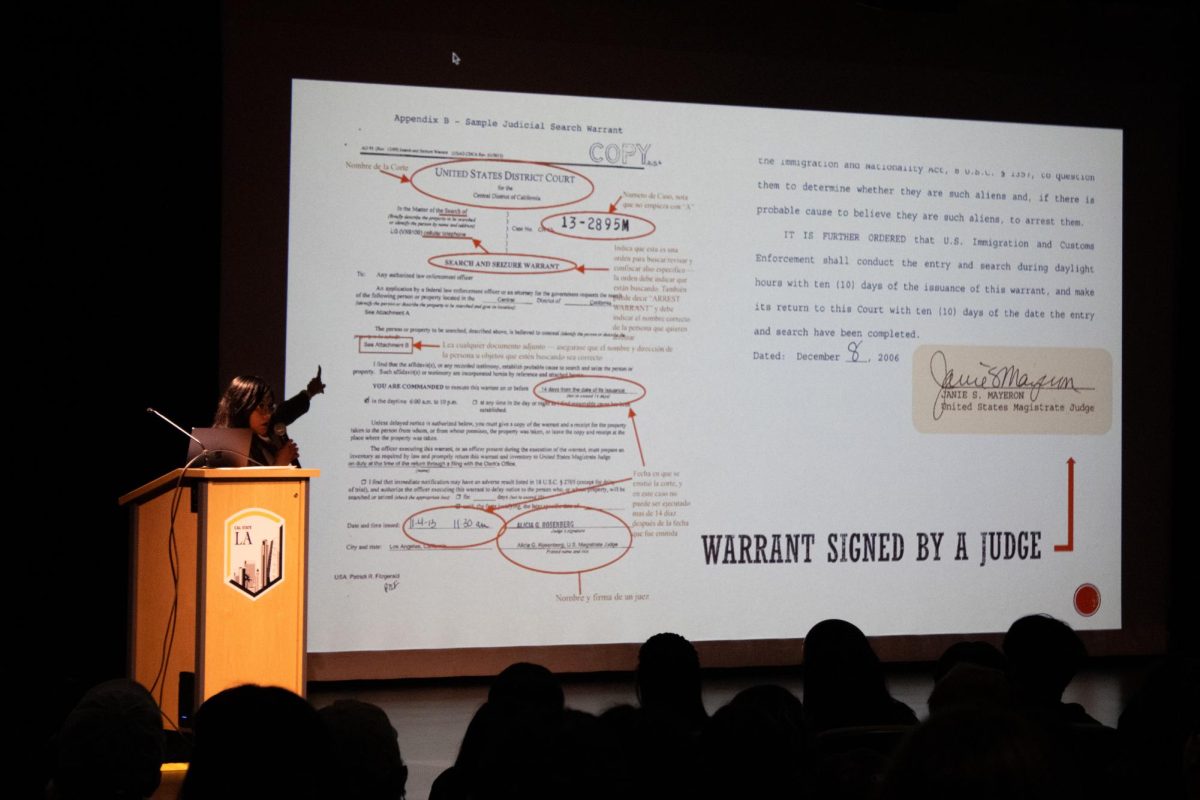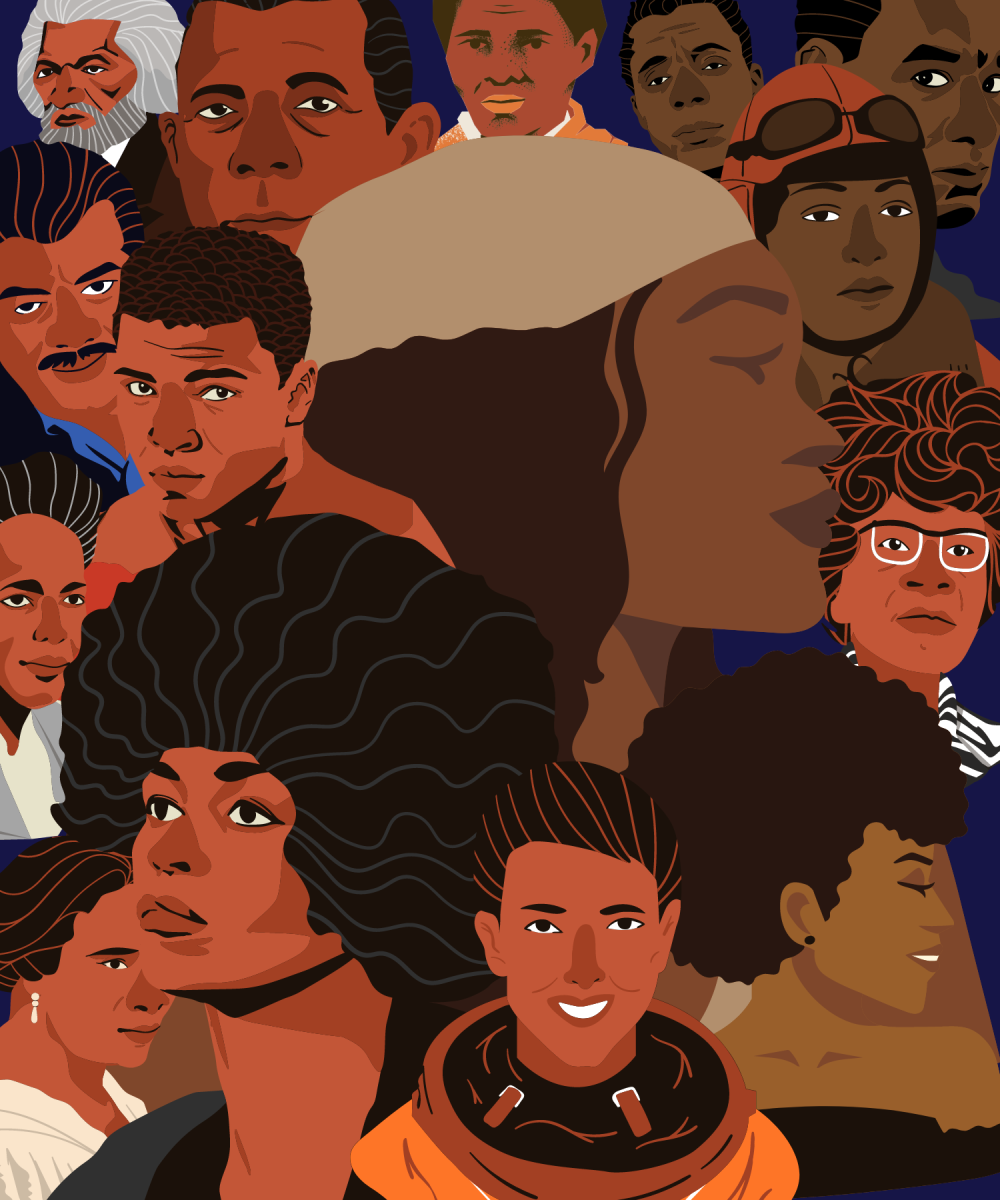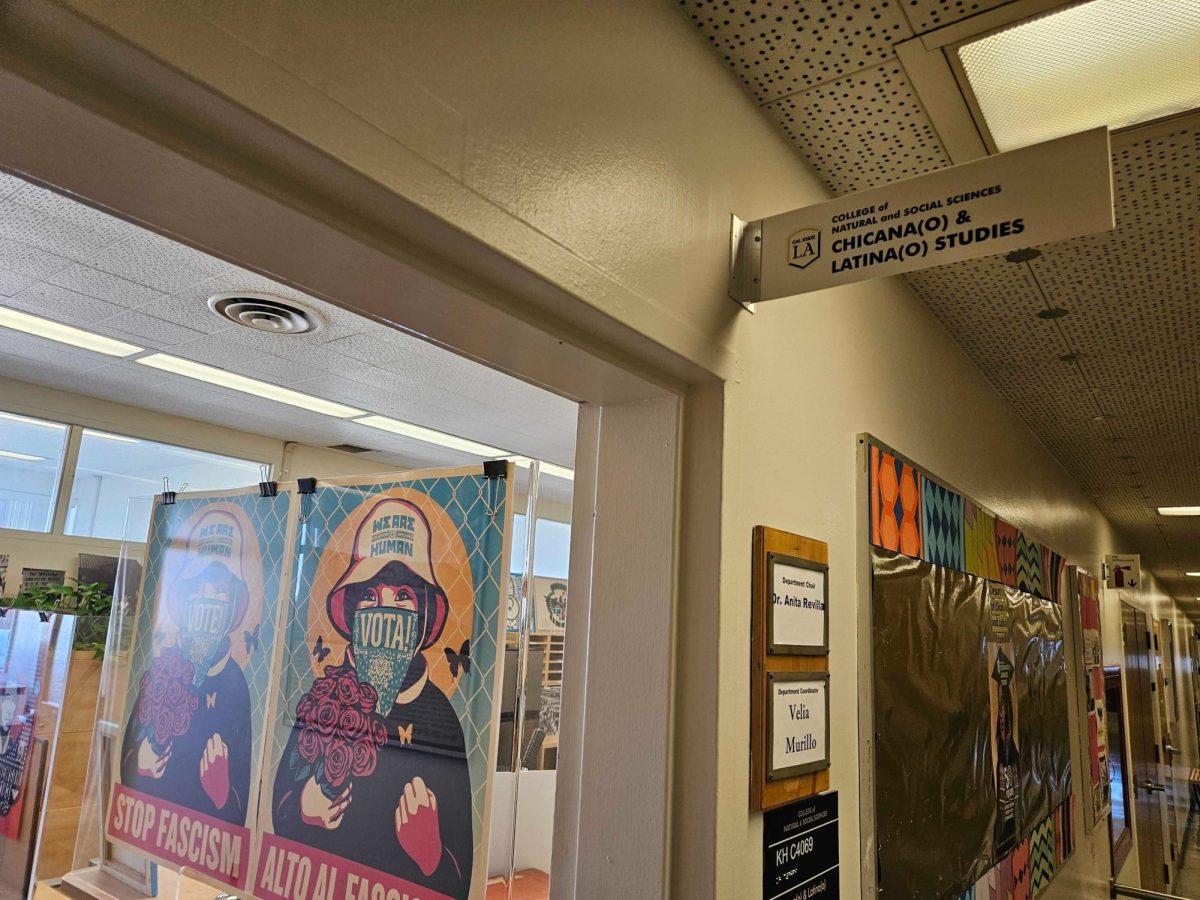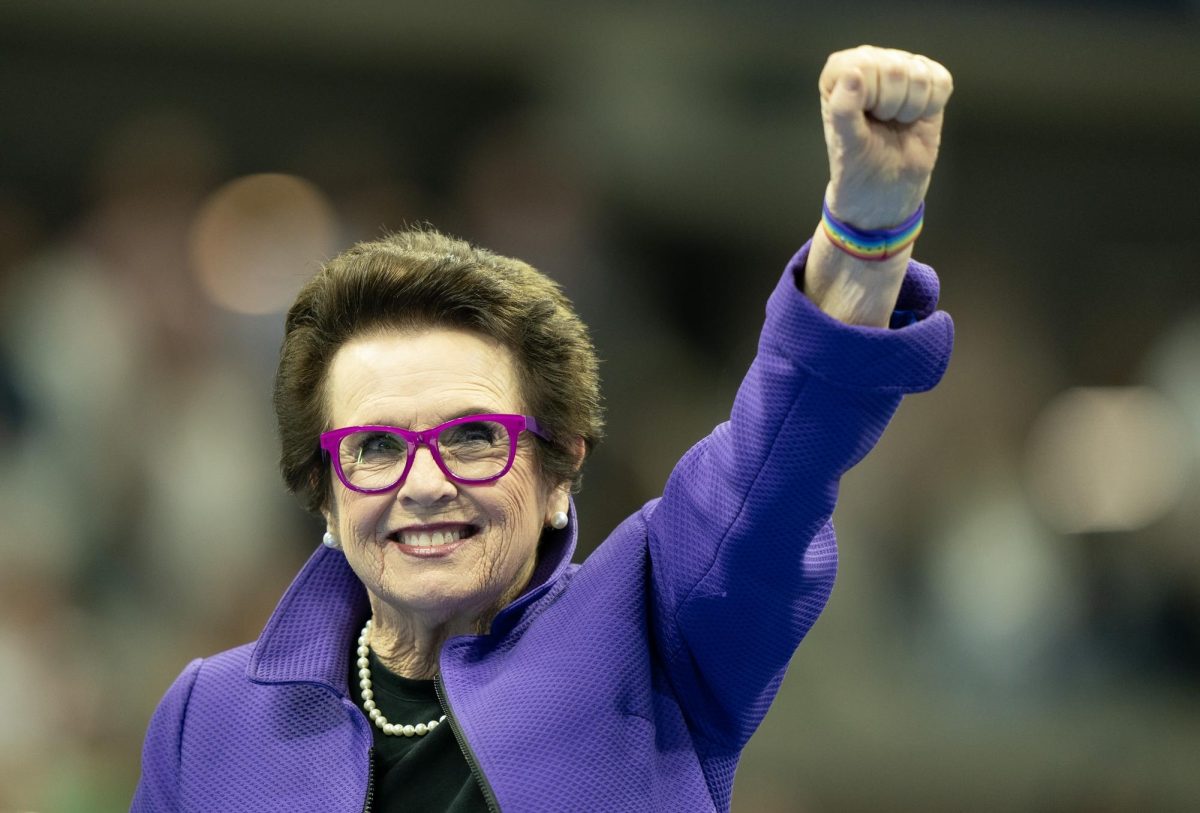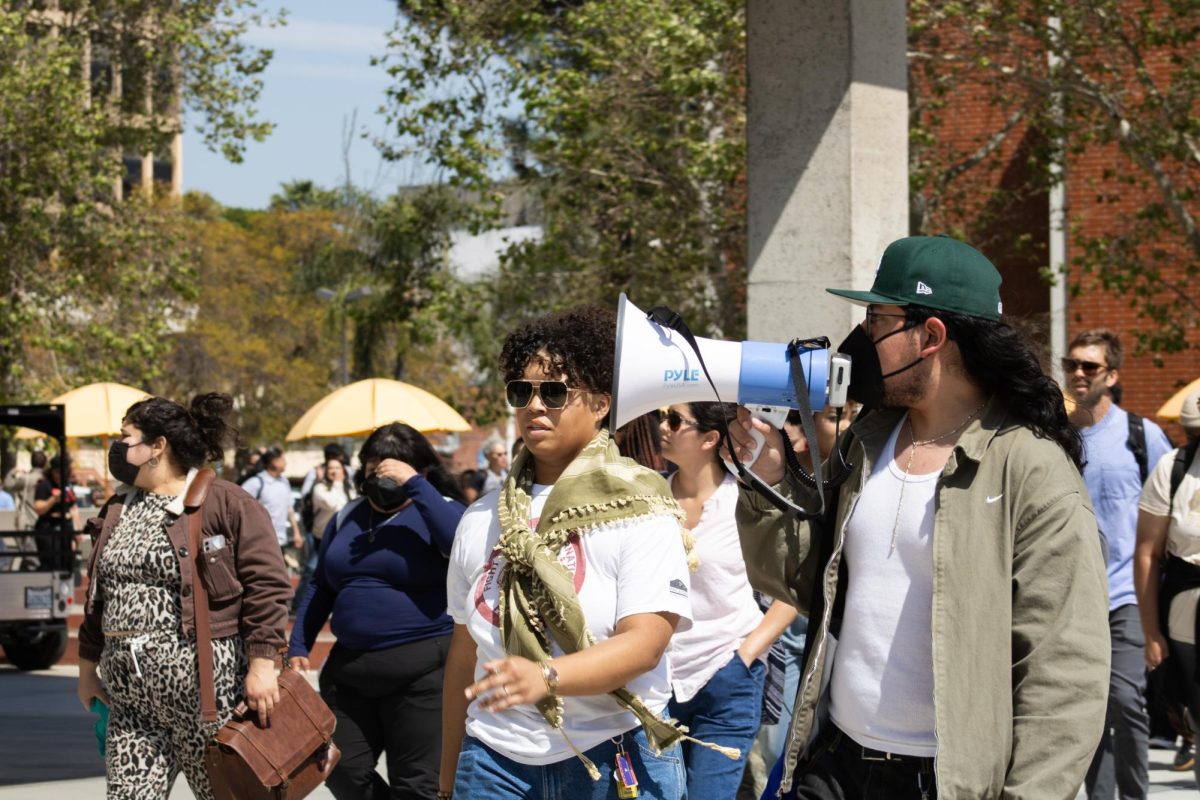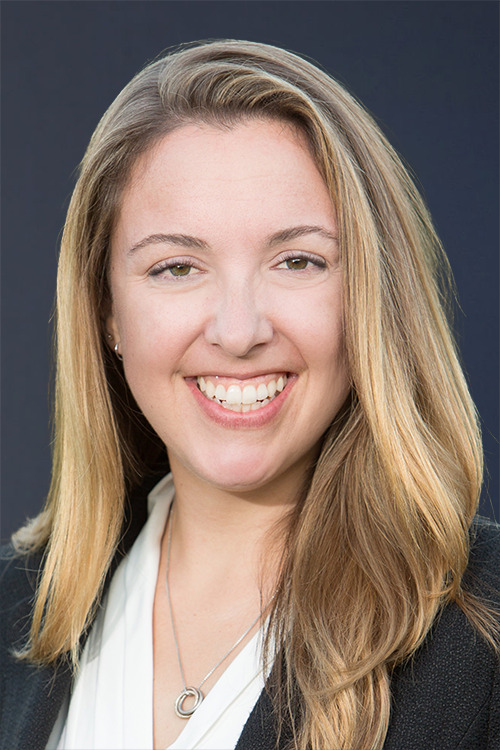Could some Cal State LA’s funds invested in campus police be used instead to offset student fees or support programs such as ethnic studies?
This was one of the questions raised at a Scholar Strike teach-in event on Facebook Live Wednesday organized by Cal State LA’s Department of Pan-African Studies and attended by more than 50 viewers.
Speakers repeatedly questioned the university’s commitment to ethnic studies, and specifically to Pan-African Studies, as well as Black students and faculty. University officials responded with new figures on campus diversity.
That includes a doubling of incoming Black students on campus this fall compared to Fall Semester 2019 — making it the “largest class of Black students [the university] has had in many years,” Robert Lopez, the university’s communication director, wrote in an email. The Fall 2020 figures are not yet available on the university’s institutional research site.
“The university has experienced significant progress in recruiting Black students as a result of a collaborative university-wide initiative that began in 2019,” involving areas such as recruitment and admissions, Lopez said, adding that Cal State LA wants to continue work on that initiative and to support students “as they progress toward their degrees, which is the highest priority.”
Students, faculty and staff across the United States and Canada participated in the Scholar Strike this week, refraining from some educational and administrative responsibilities as a call-to-action for racial injustice.
The movement was inspired by the NBA, WNBA, Colin Kaepernick and other athletes that refused to play their respective sports to call out racial injustice. The nationwide teach-in is a movement “conceived via tweet” by University of Pennsylvania professor Anthea Butler, open to students, faculty and staff, who want to step away from their regularly scheduled tasks to “raise awareness of and prompt action against racism, policing, mass incarceration and other symptoms of racism’s toll in America,” according to the strike organizers’ website.
The event comes at a time of racial reckoning within the United States. The shooting in Kenosha, Wisconsin, of Jacob Blake, a Black father shot seven times with his children watching, has sparked outrage and protest within the city. Just last week, another 29-year-old, Dijon Kizzee, was on a bicycle in South L.A. when he was flagged for an alleged vehicle code violation and fatally shot by police.
On campus, speakers at the Pan-African Studies department’s “Blackout Cal State LA: Scholar Strike for Black Lives” event featured, among other things, the ways in which Black communities have suffered over the centuries in the United States, with Black people often only being seen as forms of labor. From the start, they noted, Black folks’ labor was used to support the economy and perpetuate systematic racism.
“There are ways that we can raise our voice and refuse to continue on, that can help to shine the light and hopefully make these folks recognize that they have to address the issues that they are perpetuating, and so the Scholar Strike is that attempt,” said Anthony Ratcliff, assistant professor in Cal State LA’s Pan-African Studies department.
“The scholar strike is more informational, it’s about letting people know what’s going on and has been going on… It is that attempt to have a teach-in about resisting and how there are different ways to resist and disrupt the status quo.” -Anthony Ratcliff #scholarsstrike pic.twitter.com/76BxVfEmq1
— Tahiti Salinas (@SalinasTahiti) September 9, 2020
“Seeing time and time again that Black people are resisting by refusing to provide their labor for systems of oppression.” -Anthony Ratcliff speaking about labor strikes during the Cal State LA live stream for the #ScholarStrikeevents pic.twitter.com/4yd4zj7sMj
— Zoe Little (@ZoeLittle_LA) September 9, 2020
Dr. Anthony Ratcliff on The Revolutionary Union Movement: “They recognized the oppression, and that the hardest work being done at General Motors was by Black workers #ScholarStrike
— Matt Salcido (@msalcido555) September 9, 2020
Anthony Ratcliff, associate professor in the department of Pan-African studies @CalStateLA, detailed that racial-colonialism is denied “when you start getting everybody involved, and everybody organized” in today’s Facebook livestream. #ScholarStrikeEvents #CSLA pic.twitter.com/cq4oL6Muns
— Rucker Schantz (@SchantzRucker) September 9, 2020
Some of the speakers also criticized the university’s hiring process for the dean of the university’s new College of Ethnic Studies.
“”We’ve seen a doubling down of anti-Blackness from this administration. While they will say ‘Black Lives Matter,’ what we have seen is a divestment in Pan-African studies,” said Professor Melina Abdullah, the former department chair and a co-founder of Black Lives Matter, Los Angeles.
“What we are doing at CSULA with the Black recusal is groundbreaking and impactful … the college of ethnic studies without a Black person at the center of it isn’t ethnic studies.” -Melina Abdullah #scholarsstrike pic.twitter.com/ORNpruuNXw
— Tahiti Salinas (@SalinasTahiti) September 9, 2020
Yet investment in campus police continues, she added.
“This administration has resisted our call to remove police from campus,” Abdullah added, saying that the administration can’t just pay “lip service” to issues of racial and social justice.
Staci Mitchell, a Pan African Studies professor, emphasized the importance of Black refusal: “Cal State LA needs us way more than we need them.”
“So for me, it starts with the necessity that we even have an identity of Blackness and that our Blackness was also named in relationship to whiteness as a way to justify this exploitation of our labor” -Staci Mitchell on anti-Blackness during the Cal State LA #ScholarStrikeevents pic.twitter.com/YoGukCN0ul
— Zoe Little (@ZoeLittle_LA) September 9, 2020
Lopez said that Cal State LA’s commitment to social and racial justice is “historical and unwavering.”
Natalie Alcala, Meghan Bravo, Jathniel Coronado, Jericho Dancel, Juan R. Gomez, Krysta Pae, Brandon Rodriguez, Kenya Romero and Vanessa Wyatt contributed to this report.

